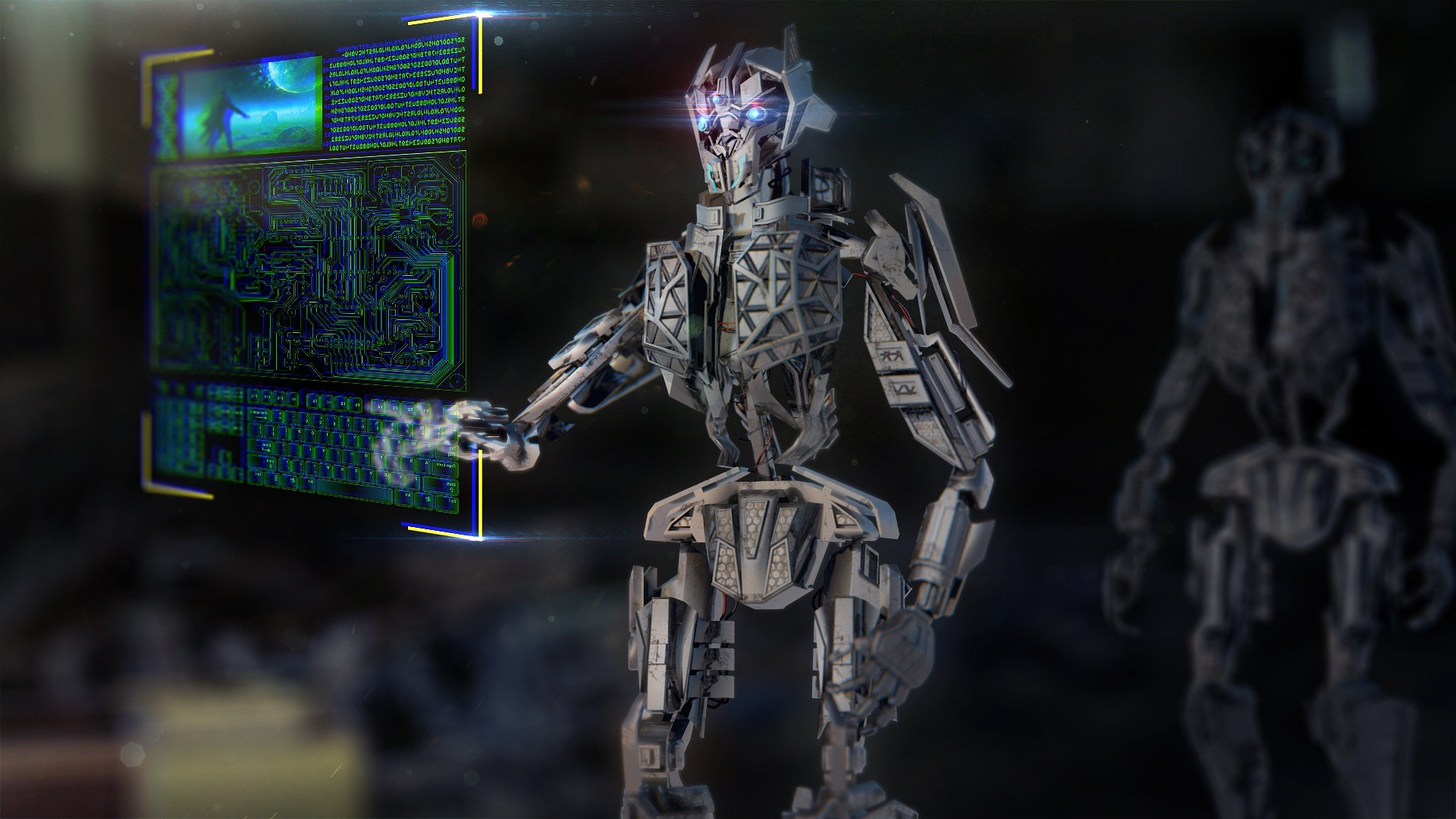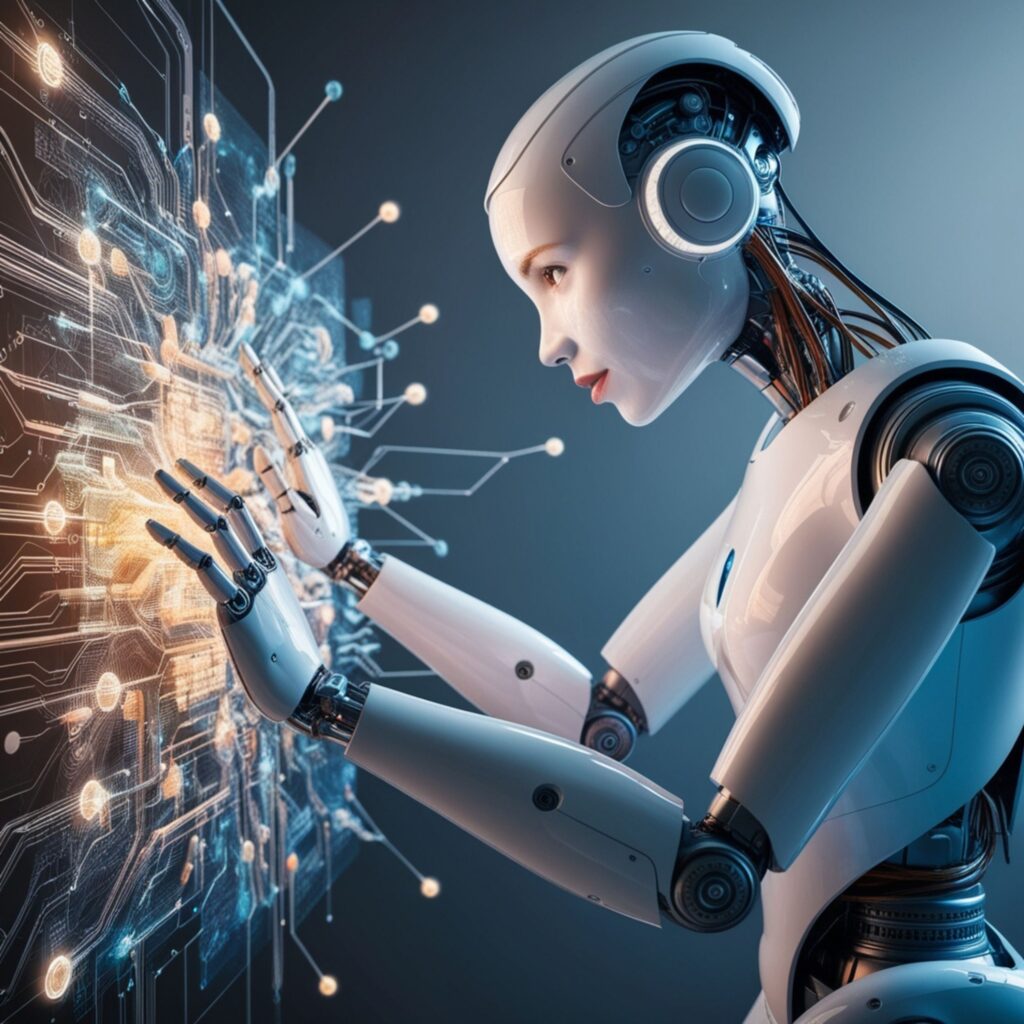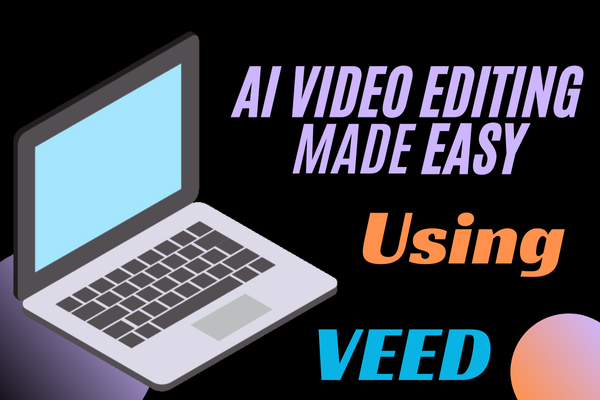
Artificial Intelligence (AI) is evolving rapidly and its impact on various industries is becoming more evident. With advances in machine learning and AI technology, many people are asking: Will AI take over our jobs? This blog explores the implications of AI, particularly in the context of content creation and the job market, and what it means for the future of work.
The development of AI and how it affects employment
Every technological development in the past has sparked worries about job displacement. When computers became widely used in the 1980, many people thought they would replace jobs. The reality, however, was different; rather than job losses, we witnessed a shift in the labor market with the emergence of new positions. In a similar vein, AI has the potential to transform the nature of work, though this change may not be as drastic as some have feared.
ChatGPT and other AI tools can automate some tasks, but they don’t necessarily replace humans. Instead, the work style is changing. Demand for content writers, for example, may drop from ten to five, but that doesn’t mean all writers will be unemployed. Human creativity and critical thinking are still fundamental.
Knowledge of the Present AI Environment
ChatGPT is just one of many AI tools available today. The market is flooded with various software solutions that utilize AI to disrupt different industries. This convergence of technologies is unprecedented, creating a synthesis that is beyond our imagination. As we look ahead, it’s essential to recognize that AI is not just a tool but a rapidly evolving entity that learns and adapts.

Image by Kohji Asakawa from Pixabay
For example, AI systems are now capable of self-learning, which means they can improve their performance over time without human intervention. This exponential growth in capabilities can lead to significant changes in various sectors, including creative fields that were previously thought to be safe from automation.
The Change in Types of Jobs
One of the most unexpected developments is that creative occupations might be among the first to experience AI’s effects. Blue-collar jobs were traditionally thought to be the first to disappear, followed by positions involving programming and coding. But we are seeing the opposite, with creative roles like writing and photography being impacted earlier than expected.
For example, AI-generated images can replicate high-quality photography, and many businesses are using these to cut expenses. A single AI-generated model can take the place of several experts, including stylists, makeup artists, and photographers. This calls into question the economic ramifications for those involved as well as the future of these professions.
The Rapid Development of AI’s Potential
The intelligence of AI systems is increasing rapidly. As of December 2022, AI’s capabilities were compared to that of a nine-year-old child, with predictions that it could reach even higher levels in the near future. This rapid development is not just a theoretical discussion; This has real-world implications for the job market and industry.
The ability to create content and perform tasks that were once thought to require human creativity is astounding. For example, AI can now create unique images and solutions to complex problems that scientists have struggled with for years. This capability poses a challenge to traditional roles and requires a reassessment of our skills and adaptability in the workforce.
Getting Ready for the Future
As we look to the future, it is important to understand that the key to surviving in a changing job market lies in adaptability. Individuals must be prepared to develop and embrace new ideas and technologies. Those who can pivot and learn new skills will be valued, while others who resist change may find themselves at a disadvantage.

This adaptation requires a change in mindset. Rather than seeing AI as a threat, we should see it as an opportunity to enhance our capabilities. Understanding the potential and limitations of AI will enable us to use it effectively in our work.
Accepting Change in the AI Age
The rise of AI, especially through tools like ChatGPT, presents both challenges and opportunities. While some jobs may become obsolete, new roles will emerge that require people’s creativity and critical thinking. The future of work will likely involve collaboration between humans and AI, with each complementing the other’s strengths.
Ultimately, the question is not whether AI will take our jobs, but how we can adapt to this new landscape. By embracing change, staying informed and continuously learning, we can position ourselves to thrive in a future where AI plays an integral role in our professional lives.

KnwCareer is a dedicated platform that offers career guidance, insights, and resources for individuals seeking to advance their professional journey.







